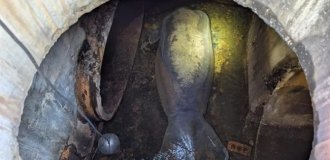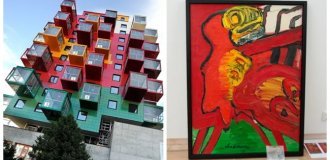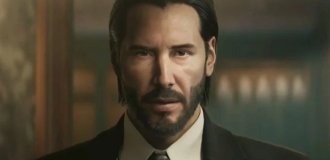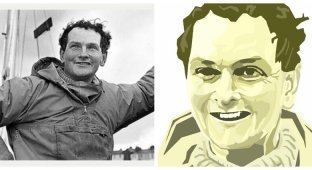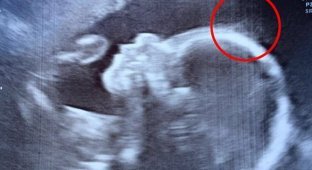The Odyssey of Donald Crowhurst: adventurism and courage (12 photos)
The life story of this man formed the basis of the film "Race of the Century." He was very brave, very desperate and a very skilled liar. But the ending of his life was not as brilliant as he would have liked. 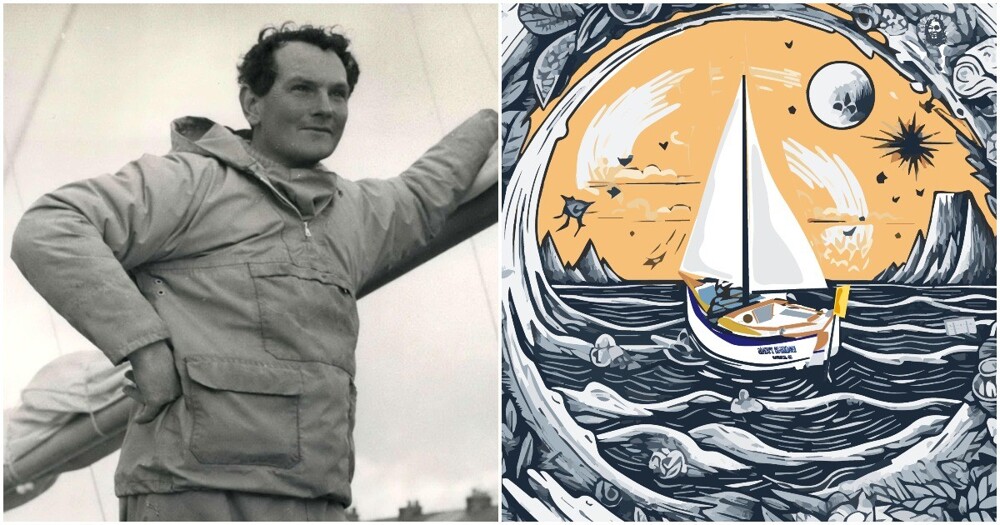
In 1932, in colonial India (the city of Ghaziabad), Donald Crowhurst was born. His father was a railway official, and his mother was a teacher. The childhood of Donald, the only child in the family, was quite unusual: the family lived in a mansion with servants, and the chef not only prepared the most delicious dishes every day, but was also responsible for setting the table.
Donald's mother really wanted a girl and dressed her son as a girl until he was seven years old. Nobody knows if this is true, but maybe this factor also played a role in the fact that Donald spent the next life trying to prove that he was a real man. 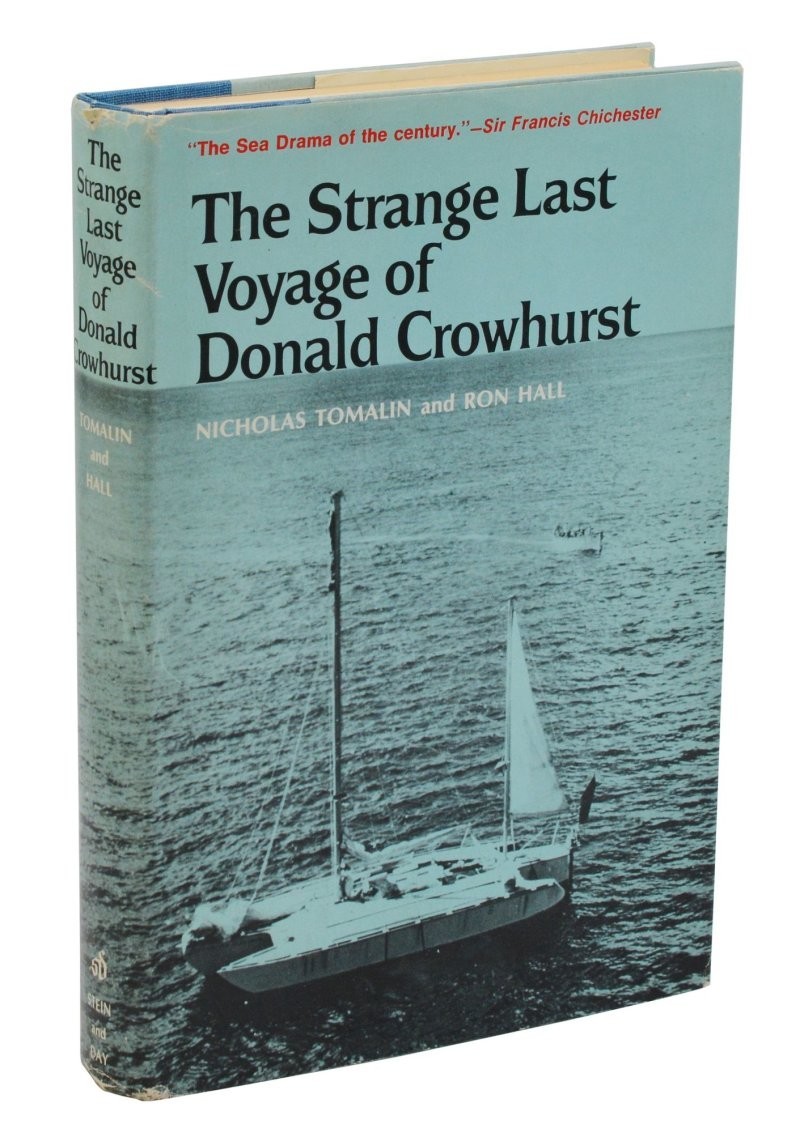
After India gained independence, the Crowhurst family returned to England. There Donald went to study at a private school, and his father invested all his large capital in a business - a sports equipment factory. Everything was going very well until someone started an arson at the factory and the building burned down completely. The head of the family died in 1948 from a heart attack.
The family fortune was no longer so good and Donald, as soon as he grew up, began to make his way through life on his own, without any help. Crowhurst began service in the Royal Air Force, where he successfully trained and received the rank of officer and pilot's license.
But even then his character was not great and his rudeness towards his superiors led to Crowhurst being expelled from the Air Force and having his rank taken away. 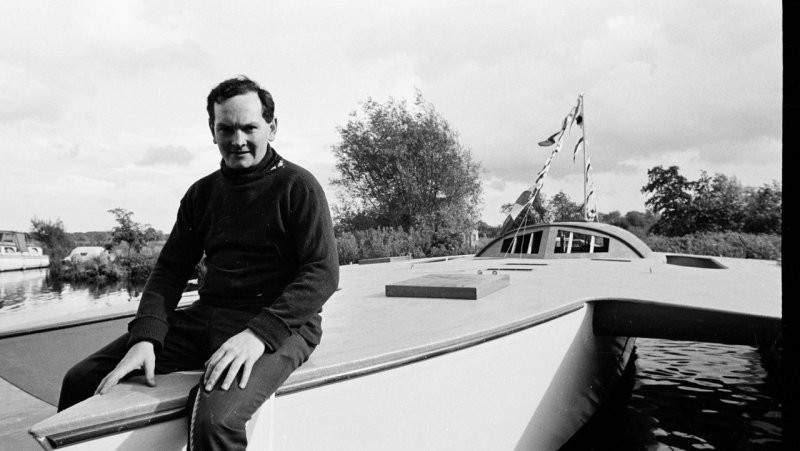
But Crowhurst did not lose optimism and went to serve in the ground forces, where he rose to the rank of officer, and at the same time studied electrical engineering at a technical college. But Donald didn’t stay here either: after returning from leave, the young man was late for the barracks and for some reason decided to use someone else’s car. Stole, to put it simply. After this, Donald had no choice but to submit his resignation.
Crowhurst was not discouraged again and decided to start a business in electronics, where he became an engineer-inventor. Donald created and patented the Navicator direction finder, intended for yachtsmen. At the same time, he met his future wife Claire at one of the parties.
The couple got married a few months later and Donald opened his own company, Electron Utilization, and the man’s passion for yachts led the family to buy their own, on which they went on mini-trips on weekends. 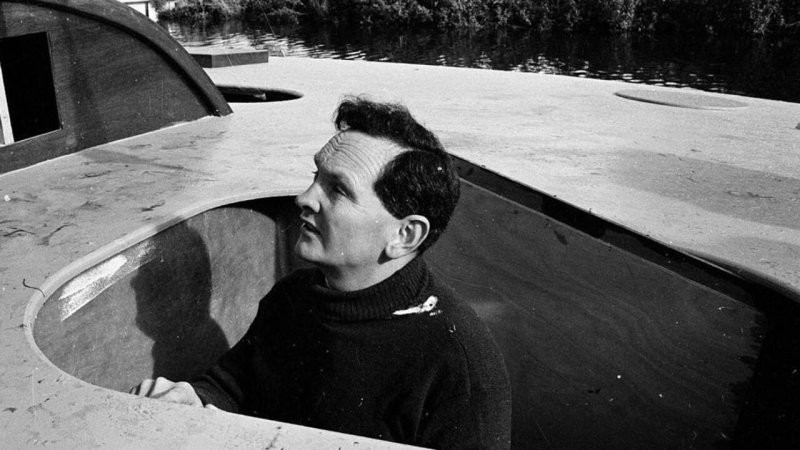
The family gradually grew and Claire and Donald had four children. But where Crowhurst was, there were failures. With the money he earned, he bought a luxury Jaguar, in which he had a serious accident and suffered a severe head injury. The treatment lasted several months, but the business began to collapse.
Crowhurst had to lay off his employees, and he himself increasingly sank into apathy and depressive thoughts. At a yacht club, he accidentally met businessman Stanley Best, who offered to lend him £1,000 so that Donald could improve the company’s affairs. Well, to be more precise, he practically rediscovered it. 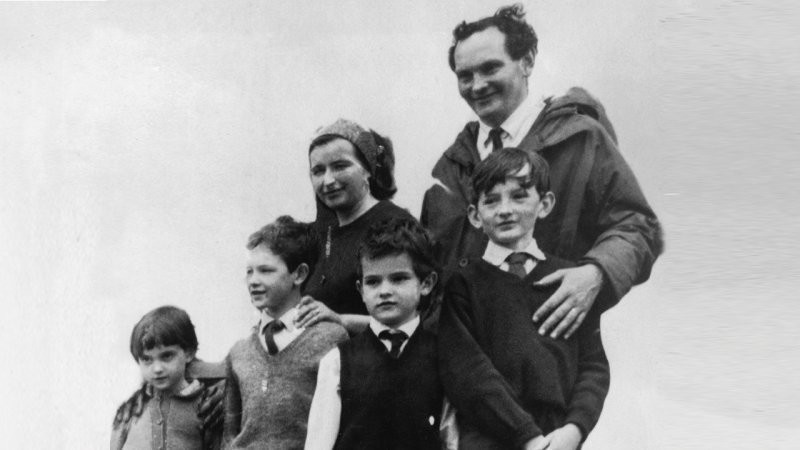
Donald with his family
And so, in 1968, the Sunday Times published an announcement that a round-the-world yacht race was being prepared, where the prize would be the Golden Globe. The one who comes first will receive 5 thousand pounds sterling, and the one who develops the fastest speed will also receive 5 thousand pounds sterling. In those years, this amount was simply crazy. Donald Crowhurst, who was practically bankrupt at that time, decided that it was time to apply for participation in the “Race of the Century”.
In the conditions of the race, there was one important factor: under no circumstances should you enter any port, accept help, as well as water and food, no matter what the condition of the ship. The yacht enters the port and drops out of the race.
Crowhurst decided that this was what would save him and his family from bankruptcy. Donald, by the time the decision was made, had nothing left except the house and borrowed a huge amount of money against it to build a yacht. 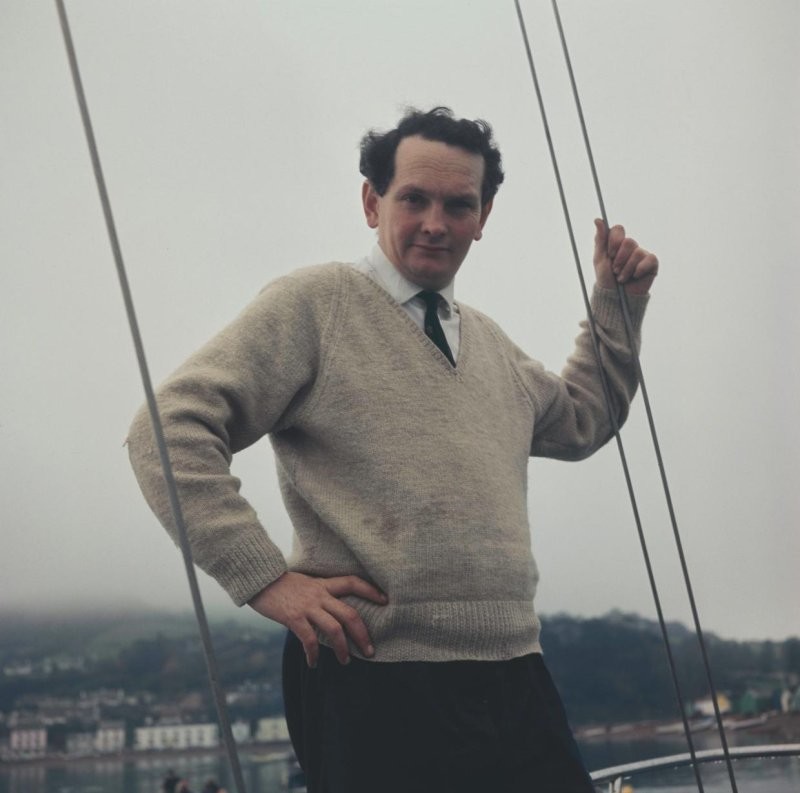
The construction of the ship and the purchase of equipment did not proceed as quickly as Crowhurst would have liked. The race was supposed to start on June 1 and last until October 31, in order to have time to cross the Atlantic Ocean in the summer. Donald was not a stupid man and he had a lot of ideas on how to improve his yacht.
His confidence in the impending victory was slightly (or rather, very much) reminiscent of obsession: he would go all the way and save his family from lack of money.
Due to all the construction delays, Donald was the last to set off on October 31st.
On October 30, he couldn’t sleep and told his wife that the yacht was not quite ready, that he had a bad feeling. Donald was actually waiting for his wife to tell him: “Stay home and we’ll get through this without this crazy idea of going around the world.”
But Claire didn't say anything. 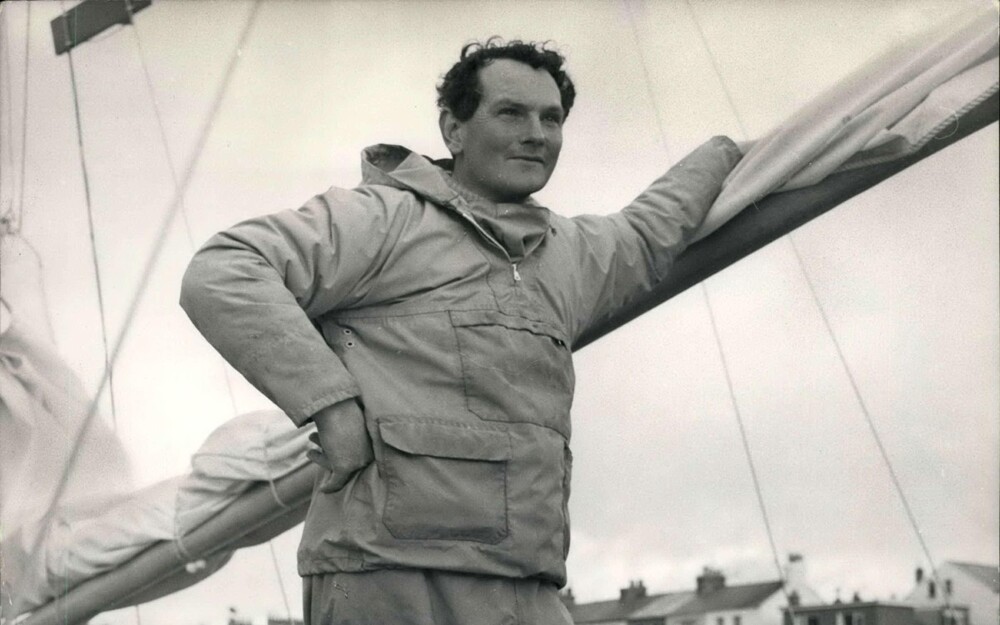
Crowhurst would have been pretty scared and repeated much the same thing to journalist Rodney Hallworth, who was doing his PR. But he just waved it off, and sponsor Stephen Best kindly reminded Donald that if he refused the regatta, he would take his house and the remains of the company. Crowhurst had essentially painted himself into a corner, but there was no way he could give up.
The yacht was built in the shortest possible time, was full of technical innovations, but problems began to arise from the very beginning: it developed high speed, but could not sail into a wind steeper than 60 degrees. The yacht was not even ready for the English Channel, but they planned to send it on a trip around the world.
The equipment parts were loosely secured, the equipment that should protect the yacht from capsizing (in case of a storm) was never installed, and a leak began in one of the hulls. Donald honestly estimated that he had about a 50/50 chance of returning home alive. 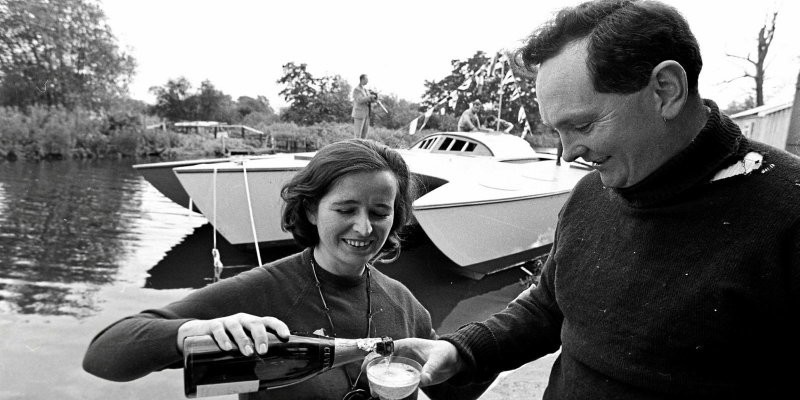
Constantly breaking down, in two weeks Donald reached Portugal and showed good results in speed. When the electric generator flew on the miracle yacht, the rider had neither radio communication nor lighting. Needless to say, he was very behind the other participants. There was no longer any talk about fair winning. On November 13, Donald wrote in the logbook: "Only one generator failure is enough to stop the race. What should I say to Stanley Best and my family?"
Donald was forced to make a stop in South America, thereby violating the rules of the race. And then a creative and expected idea came to his mind: turn off radio communication for a while, as if it had broken down, quietly drift across the Atlantic Ocean, sending false coordinates to the race directors and writing down a fake logbook.
In those days there were no satellites and the adventure was quite doable.
Donald admitted that he had lost the race (at the start, perhaps), but the horror of the prospects for his wife and children told him that it was impossible to admit defeat. 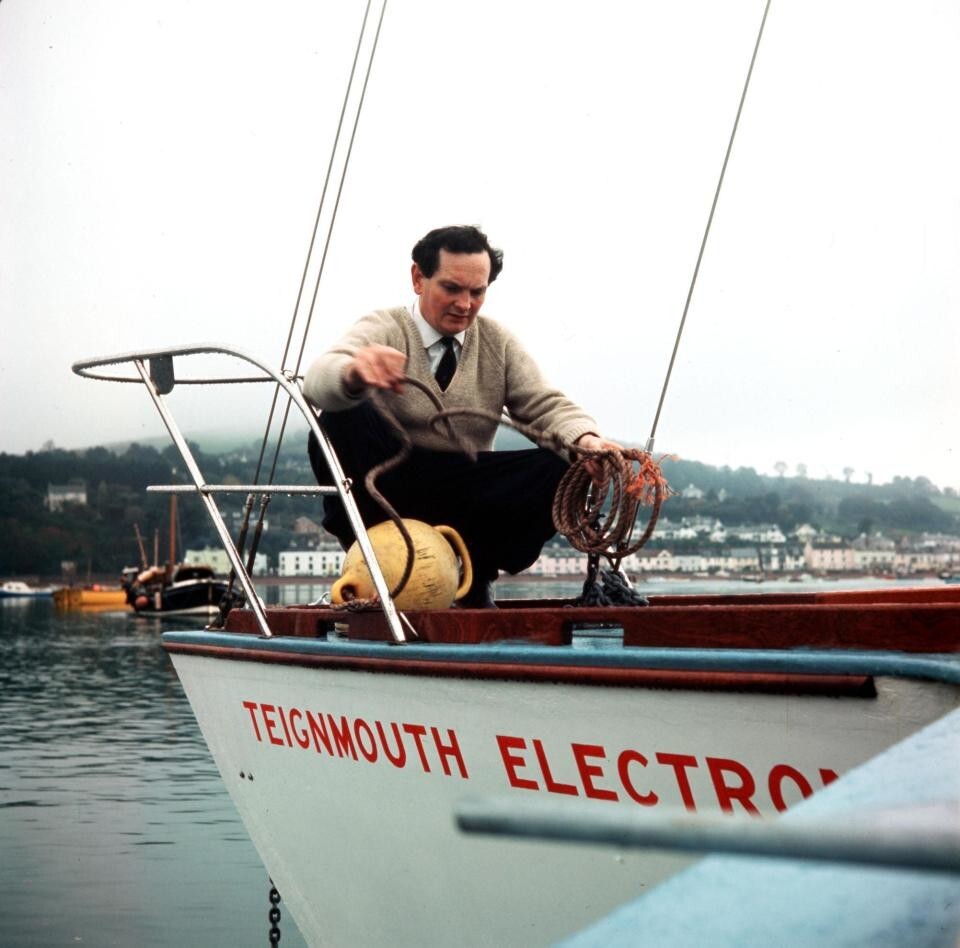
Meanwhile, other participants in the race, without knowing it, gave him a chance for a real victory: someone left the race due to a sudden stomach ulcer, someone broke down, someone even decided that to hell with everything, I’m staying to Tahiti. There were fewer and fewer participants and Donald, knowing this, believed more and more in his fake victory.
Donald rarely got in touch, explaining this by difficulties with the generator, almost never gave the exact coordinates of his location, and then began to name those thanks to which he became one of the top three.
In fact, the great schemer drifted near the Falkland Islands, trying not to end up on popular sea routes and simply waited for the participants walking along the route to also reach these places. And then he planned to take the opposite course.
Crowhurst did not even plan to win, planning to come second: this would not give him money, but popularity, which could be used to return the company to prosperity. Donald also reasoned that the journal of the second would most likely not be studied as closely as the first.
One of the leaders, Nigel Tetley, assuming that Crowhurst would now catch up with him, drove his middle-aged yacht at full speed. But at night a strong storm capsized the boat, and Tetley sent a distress signal and was rescued by an Italian ship.
Crowhurst began to feel guilty, because the situation was his fault. Tetley's withdrawal from the race meant that Donald moved into the lead: careful study of the logbook, tricky questions about the yachtsman's invented storms, being caught in a lie and the final destruction of his reputation.
And then Rodney Hallworth (a PR journalist) got on the radio with him, joyfully announcing that posters were being prepared in Crowhurst’s honor, thousands of people would gather in the city where he started, Claire and the children, of course, would be the first to meet the winning dad.
And then he asked when to expect the yachtsman. Donald sadly did not say anything precise, saying that it was calm and there was no tailwind. 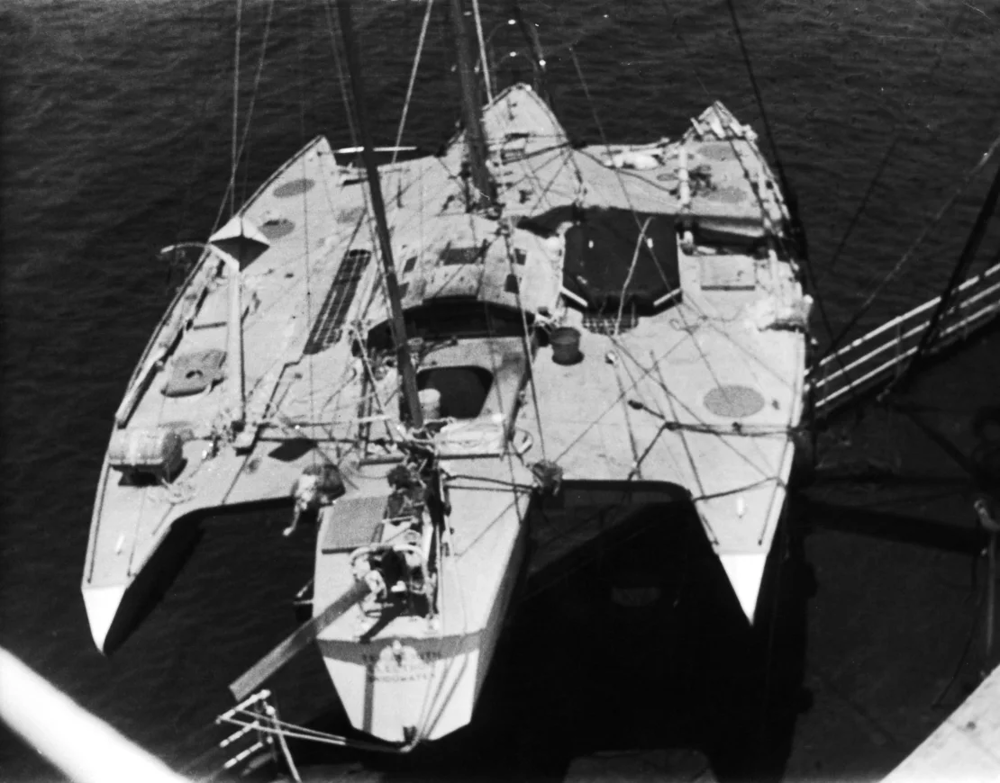
Donald's boat. She is lifted aboard another ship after being discovered in the Sargasso Sea
On June 30, 1969, Donald Crowhurst wrote in his diary: “This is the end of my game. It is revealed, and everything will be done as my family demands of me.”
The last entry sounded hopeless: “It’s over.”
Nine days later, Donald's yacht was found by a British Navy vessel in the Sargasso Sea. It was empty and drifting on the waves. The diary and the ship's log lay on the table in the cabin.
Crowhurst could not return home; nothing good awaited him there. And he decided to die.
Someone, by the way, suggested that Donald simply faked his death and hid somewhere. 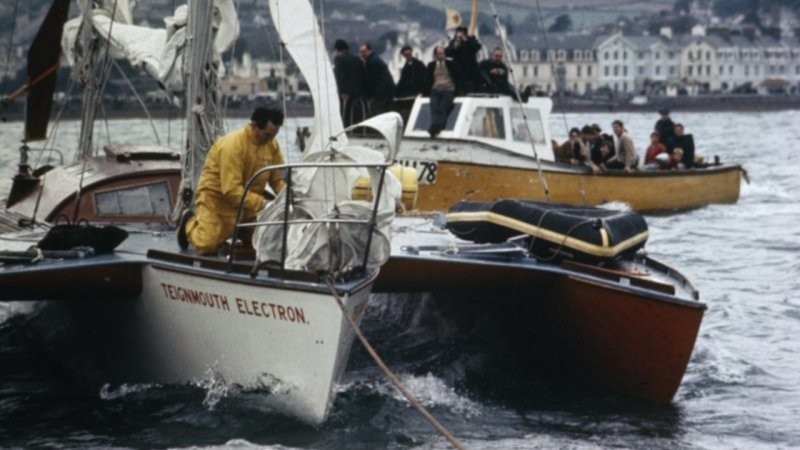
The commission carefully studied Crowhurst's ship's logs, despite the fact that the most important one, with entries about the fake circumnavigation of the world, disappeared along with Donald.
The man's diaries were studied by several psychiatrists, who wrote articles based on them about how Donald systematically went crazy. All doctors agreed that the yachtsman had an undiagnosed mental illness, which had seriously worsened against the backdrop of extreme stress and several months of loneliness.
The main idea running through all his writings was that human life is a game that is closely watched by certain “cosmic beings.” But if you strain your will, a person himself can become one of these cosmic beings and thus leave the “game”. 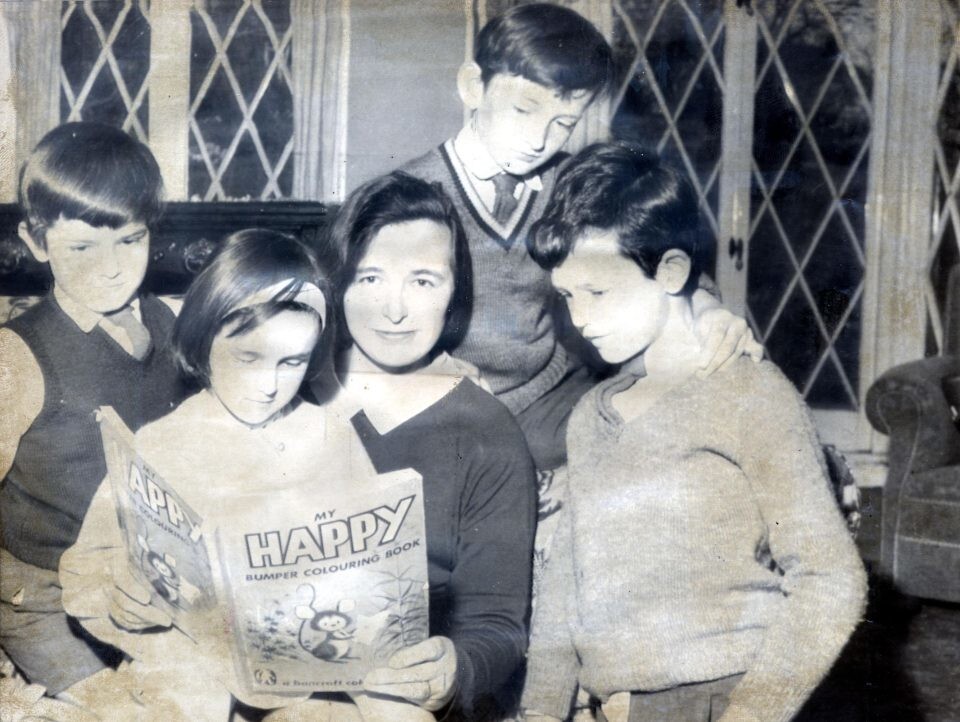
Claire said her husband didn't want to lie. He wanted to save the family from collapse and when asked “could she have stopped him,” she always answered that at that moment, she thought that her husband was doing the right thing. And that Claire is faithful to his dream, because she is his wife.
What happened next?
The regatta was won by Robin Knox-Johnston. After the investigation, a fund was created to help the family of Donald Crownhurst, because, after all, what is the children’s fault that their father was born so awkward?
Knox-Johnson donated his entire prize to the fund: five thousand pounds and a Golden Globe. And the navigator Francis Chichister called the incident “the maritime drama of the century.”
The drama of a man who went all-in and lost.


